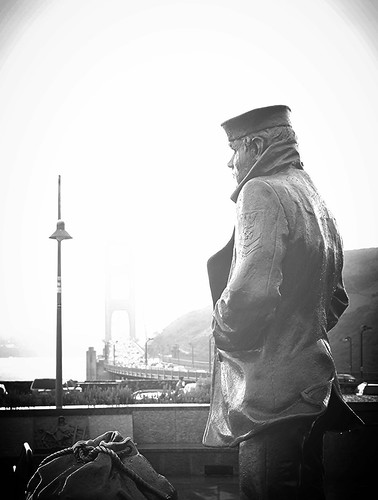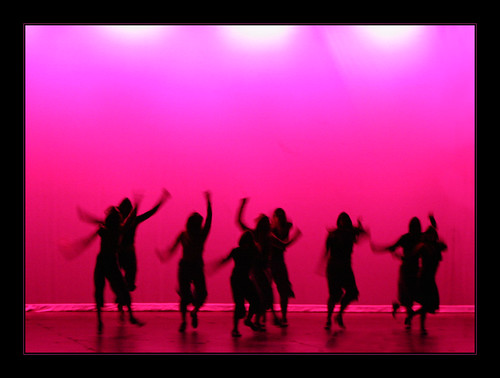‘Some Other Race’, or as I say, ‘Other’, is a growing demographic as I mentioned yesterday. Had I not been given as much resistance in discussion, I would have gone along thinking that
A Colorful History
The United States Constitution (Article I, Section 2) established representation in the U.S. House of Representatives was based on population determined by census. It’s a very interesting read – I encourage the reader to follow links I provide to get a feel for the broader picture. In writing this, I am writing specifically about the growing demographic that is of ‘Some Other Race’, or ‘Other’.
Of course, the census was quite different in 1790. The questions asked were:
- Name of head of family
- Number of free white males age 16 years and upwards, including head of family
- Number of free white males under 16 years old
- Number of free white females, including head of family
- Number of all other free persons [free African-Americans]
- Number of slaves
This basically slotted everyone into one of 3 categories: free whites, all other free persons and slaves. To date, while there are discussions about other races, the one that pulls all the oxygen out of the room is just the same from the outside looking in. There is reason for this, but with such a growing demographic as ‘Other’ has been, the choice to use ‘some other race’ is increasingly a larger minority made up of many types of people.
‘Free Whites’ was a part of the 1790 Nationality Act. Only white, male property owners could naturalize and acquire the status of citizens. Women, people who were not recognized as white and indentured servants could not. In so doing, a legal category of “aliens ineligible for citizenship” was created and racial restriction for citizenship was not completely eliminated until 1952. If you were not eligible for citizenship, you weren’t permitted to own property, be represented in court, have public employment and voting. At this time this affected a lot of Asians.
Mulatto was added in 1850, bringing the categories to 4, and it was all based on whites and blacks. By 2010, there were 63 possible race categories. Of related interest and reading is the ‘One Drop Rule‘, which culturally still seems to be used. We’ll get back to that.
From 2016, we have this:
“Something unusual has been taking place with the United States Census: A minor category that has existed for more than 100 years is elbowing its way forward. “Some Other Race,” a category that first entered the form as simply “Other” in 1910, was the third-largest category after “White” and “Black” in 2010, alarming officials, who are concerned that if nothing is done ahead of the 2020 census, this non-categorizable category of people could become the second-largest racial group in the United States…”
“The Rise of the American ‘Others'”, Sowmiya Ashok, The Atlantic, August 27th, 2016
It’s awkward to say that ‘Other’ is a racial group, which presents the inherent bias in a system designed to track people by race – a cheap attempt at color coding humanity into things to manage. As Kermit the Frog might say, it’s not easy being green.
From 2018, we have:
…The United States census breaks our country into six general racial categories: White; Black; Asian; Native Hawaiian or Other Pacific Islander; American Indian or Alaska Native; and Some Other Race. “Hispanic, Latino or Spanish origin” is treated not as a race but as an ethnicity — a question asked separately. So someone may be White (Hispanic) or Black (Hispanic) but not simply Hispanic. As a result, many Hispanics check “White” or, increasingly, “Some Other Race.” This ill-defined category is what mixed-race Americans, like me — half Burmese, half Luxembourgian-Irish — often check. It might just as well be called “Generally Brown.” Today, the third-largest racial group in America is “Some Other Race” — and it is made up overwhelmingly of Hispanics…
“The Americans Our Government Won’t Count“, Alex Wagner, New York Times, March 30th, 2018.
It ends up that there may have been some padding in the statistics, too.
“…It is also no coincidence that the reforms the administration is resisting would have decreased the number of American “Whites.” Census research showed that when presented with the proposed changes, Hispanics identified as “Hispanic” alone at significantly higher rates than they did as “White (Hispanic)” or “Some Other Race (Hispanic).” The same was true for residents of Middle Eastern origin, who, when given a category of their own, mostly chose it over “White.”
This would have exposed the fact that the category of “Whites” has been artificially inflated, eroding its primacy at a time when whiteness — of the decidedly European strain — has gained new currency…”
The Americans Our Government Won’t Count“, Alex Wagner, New York Times, March 30th, 2018. (ibid).
The article goes on to say that to claim to be either Hispanic or Middle Eastern in the United States is a political act. I don’t know about that. I don’t know how many ‘Other’ are this and that or the other or something completely different. It’s completely different based on what someone is willing to identify as to a government, to offices, and to apply for grants at a financial aid office.
From 2021:
“…What was once the country’s third-largest racial category in 2000 and 2010 outpaced “Black” last year to become the second-largest after “White” — and a major data problem that could hinder progress towards racial equity over the next 10 years…”
“1 In 7 People Are ‘Some Other Race’ On The U.S. Census. That’s A Big Data Problem“,
Hansi Lo Wang, NPR, September 30th, 2021.
That article goes on to give the history of ‘Other’ in the U.S. Census. First used in 1910, it was the job of census workers who assigned people to a race by observation, and were instructed to label those that they couldn’t recognize as ‘other’, and write down the race. One of the bureau’s 1910 census reports even included Hindus as a race: These would be East Indians, from India, in an era when Native Americans were still called ‘Indians’, the Columbus idiocy that would not die quietly.
In 1960, the bureau allowed U.S Residents to self-report their racial identities, and in 2000 the checkbox came along.1
…”For a long time, there was the sense that there wasn’t anything wrong with the question, but rather that Hispanics didn’t understand the question. And I remember thinking, ‘Wow,’ ” says Clara Rodriguez, a sociologist at Fordham University and author of Changing Race: Latinos, the Census, and the History of Ethnicity in the United States. “‘Some other race’ was something to be taken seriously, not to be dismissed as a misunderstanding on the part of the Hispanic population.”…
“1 In 7 People Are ‘Some Other Race’ On The U.S. Census. That’s A Big Data Problem“,
Hansi Lo Wang, NPR, September 30th, 2021. (ibid)
I have no doubt that some people who identify themselves as ‘other’ are of Hispanic origin, but it’s hard to say that all of them are. In fact, there may be some, like me, who just think it’s an insulting question, but there would be many other individuals with their own reasoning. What’s the incentive for filling out a form and telling them what you identify as? This seems to be an application of the ‘One Drop Rule’, as previously mentioned.
Generally speaking, people like to belong. People announce their love to the government through marriage licenses, so announcing their tribe to the government makes about as much sense. Yet, the numbers of ‘Some Other Race’ have been consistently growing, and I have yet to be invited to an ‘Others’ meeting.
The one thing that connects ‘Others’ is the one thing that divides them: The U.S. Census and it’s use of race. It underlines how silly the system is, where people either can’t or won’t claim a race in the census. Humanity is a melting pot.
It is mildly disturbing that in it’s bid to be more granular, the U.S. Census Bureau is finding nationalities in ‘some other race’ respondents. A Brazilian could be any combination of heritages, but since I know Guyana a bit better and they are mentioned, the majority of the population of Guyana is of a mix of African descendants (from slavery) and Indian (Indentured Laborers), and so those reporting themselves as Guyanese could be either one, both, a mixture, indigenous, or even of majority European descent. During World War II, many people blended into South America in various nations.
The system is as cleanly cut as what race is – a social construct that was originally created to allow some to be ‘greater’ than others.
It begs the question of whether race is itself still a pertinent way to track people. It only benefits those that already have purchase or the capacity to purchase, not those who do not. It’s clearly an administrative nightmare, built on the politics of the moment. To what end?
It ends up that ‘Other’ is a pretty big data problem for a system built on counting how many of each race as well, something that potentially can skew a lot of other things.












